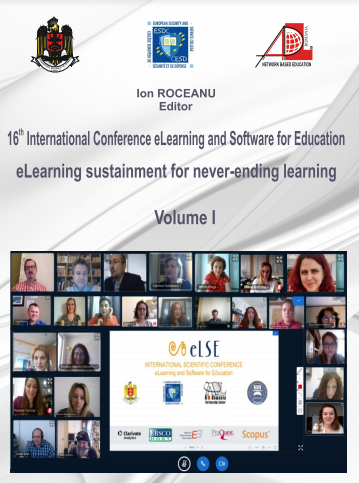PARTICULARITIES OF STUDENT LEARNING FROM THE PERSPECTIVE OF ONLINE OR TRADITIONAL LEARNING ENVIRONMENT
PARTICULARITIES OF STUDENT LEARNING FROM THE PERSPECTIVE OF ONLINE OR TRADITIONAL LEARNING ENVIRONMENT
Author(s): Cornel IgnaSubject(s): Educational Psychology, ICT Information and Communications Technologies, Distance learning / e-learning, Pedagogy
Published by: Carol I National Defence University Publishing House
Keywords: learning environment; personal relevance; authentic learning; student’s autonomy;
Summary/Abstract: The role of the school and the teacher in the third millennium implies a change of the traditional paradigm, of a magisterial-centric type, which assumes that the teacher-pupil and teacher-student relations to be official, with strictly defined roles and statutes. Thus it is necessary to rethink and redefine the educational systems, especially the learning process, as Ken Robinson states “As much as we love the school, we must accept that it is no longer the only or the main space of knowledge and learning, as it was centuries in a row, but only one of them.”(2015) In this sense, an approach perspective that we propose for analysis is given by identifying the references and characteristics of student learning in the online environment or as the traditional form, in the student's classroom environment. Thus, the premise is the learning process, as an individual activity, which involves the student in developing and coordinating his own learning strategy. Even if students, colleagues in the same training program, aim to obtain the same qualifications and competencies, each has its own strategy / learning style, with significant individual differences. The main factors that the student can control, especially in the online learning are: the learning conditions; personal motivation; personality, the degree to which each student is organized, with adaptability and creativity dispositions, volitional qualities etc.; previous qualification and knowledge, the level of initial experience with which the student enters the program (a solid fundamental preparation, in the program field, facilitates the learning activities and makes it easier to acquire new knowledge); the style and the capacity of learning, the experience and the student’s capacity of intellectual and social learning (adaptation to the rules and to responsibilities of the education centered on the learner).
Journal: Conference proceedings of »eLearning and Software for Education« (eLSE)
- Issue Year: 16/2020
- Issue No: 01
- Page Range: 342-346
- Page Count: 5
- Language: English

